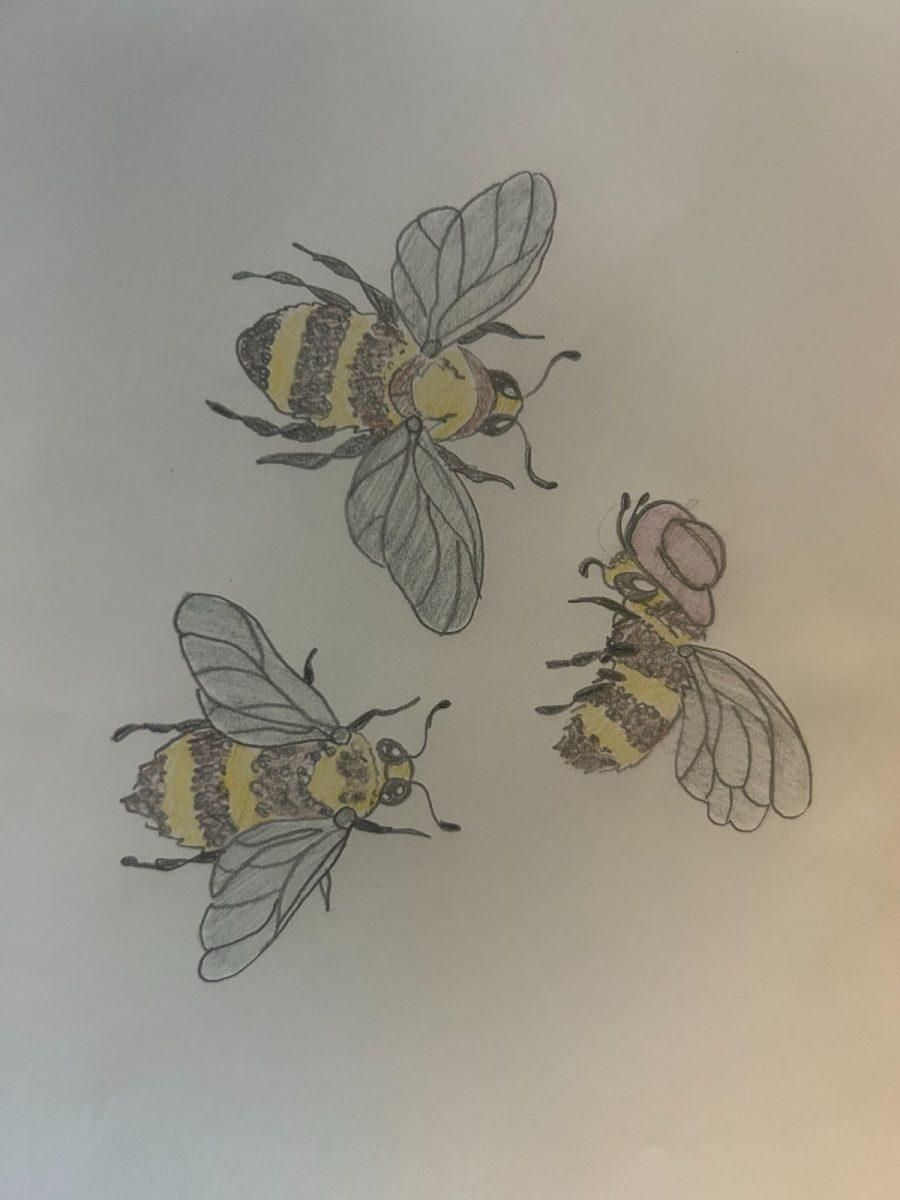Beyoncé Gisele Carter Knowles has been defying the boundaries of the music industry since before I was born. She became famous in the late 1990s with her former female pop group, Destiny’s Child. They were formed in Houston, Texas, which is also Beyoncé’s hometown. Since then, she has quickly moved through the industry as a solo artist, due to her dedicated work ethic, unreal vocal ability, and unwavering love for music.
Throughout Beyoncé’s discography, each album is a work of art in itself. “Lemonade” is Beyoncé’s magnum opus. It details a time where she was wronged and is musically genius. I’d like to believe that “Lemonade” sparked her interest in writing a country album, especially because of her experience performing the album with The Chicks at the Country Music Awards (CMA) on Nov. 2, 2016. It was the highest rated 15 minute segment in CMA history, and they sang Beyonce’s song “Daddy Lessons,” which features them. The media reaction was harsh, to say the least. Die-hard country fans from all over the South ridiculed Beyoncé, and pushed her out of “their” genre.
On March 29, 2024, Beyoncé released Act II of her three act album sequence. Her hit album “Renaissance” was Act I, and Act II is an album with country roots and elements of R&B. This album is called “Cowboy Carter.”
Leaux Elstad, a dance instructor in southeast Portland, is also a Beyoncé fan. When asked for a response to critics who argue that Beyoncé’s venture into country music dilutes the authenticity of the genre, Elstad explains, “I would always revert back to how she said that this hasn’t been a country album, rather that it is a cross genre, Beyoncé style album that has a focus on country and Americana.” In regard to the messages and themes Beyoncé portrays in “Cowboy Carter,” Elstad says, “I think she’s really trying to convey the fact that the history of country music came from Black culture and Black history. Up until this point, that hasn’t really been a pattern in mainstream [media] at all, and it has been hard for Black artists to break that.”
Many fans of Beyoncé anticipated a struggle to bridge the gap between Beyoncé’s urban fanbase and the traditional country music audience, which was proven during 2016. Soon after the video of Beyoncé and The Chicks’ performance was posted, the CMA Youtube account pulled it from the platform. “If anyone can [bridge the gap] [Beyoncé] can. Like she showed in this album, she can take three different genres and put it in one song,” Elstad states. “I feel like it’s going to have a great impact on our history, as far as music history goes.” “Cowboy Carter” is transformative, raw, and hauntingly beautiful. Beyoncé combines country, rap, and R&B into an emotional piece of art. Everything she has to offer is placed into this album.
Corey Williams, president and founder of Sair, a diversity, equity, and inclusion consultant firm, speaks fondly about Beyoncé and “Cowboy Carter,” as a traditional country music fan from Alabama. “I think [Beyoncé] is absolutely reclaiming her identity as a Southern woman,” Williams explains. “There is a very racialized idea of what it is to be southern, and it is specifically white. Black people were in the South almost exclusively until the Great Migration, and those of us who are American descendants of slaves have roots in the deep South.”
Williams brings up a point that many white country fans in the United States have trouble understanding. Living in the bubble that is Portland, it can be really hard to comprehend the view that many right-wing Americans hold, which is that Black and Indigenous people of color don’t or shouldn’t have a place in this country. The reality is, we may never have the ability to change their minds, but the facts will always stay the same. Country music has its roots in the blues, which was created by Black musicians, and our country was built by Native Americans, and Black and Latino immigrants. Who are the descendants of white colonizers to say that a genre of music belongs to them?
Beyoncé’s “Cowboy Carter” is sure to leave a legacy within Beyoncé’s discography, as well as an impact on the broader music industry landscape. “I think [“Cowboy Carter”] is exploring a side of [Beyoncé], and by proxy, a side of Black contribution to music that is so important and worth having conversations about, even when there’s backlash,” Williams states. “I’m excited that we’re having the conversation, and we wouldn’t be having them if it weren’t for ‘Cowboy Carter,’ right?” She adds that there are so many Black women in country writing about being a Black woman writing country, and she hopes that people finding Beyoncé in country can find them too. “While Black folks haven’t been so visible in country music, I think that [Beyoncé’s] lasting legacy will really be about having opened up this conversation, and opened people’s eyes to the fact that there are Black country music artists, and I’m super grateful for that.”
On “Spaghetti,” my favorite track off “Cowboy Carter,” Linda Martell opens the song saying: “Genres are a funny little concept, aren’t they? In theory, they have a simple definition that’s easy to understand. But in practice, well, some may feel confined.” According to Dictionary.com, “genre” means a “class or category of artistic endeavor having a particular form, content, or technique.” Beyonce defies racial bias and backlash by proving her worth and full ability, wielding unique lyricism, and dedicating herself to her passion. Breaking boundaries and using genres to her advantage, Beyoncé herself is a genre.


































